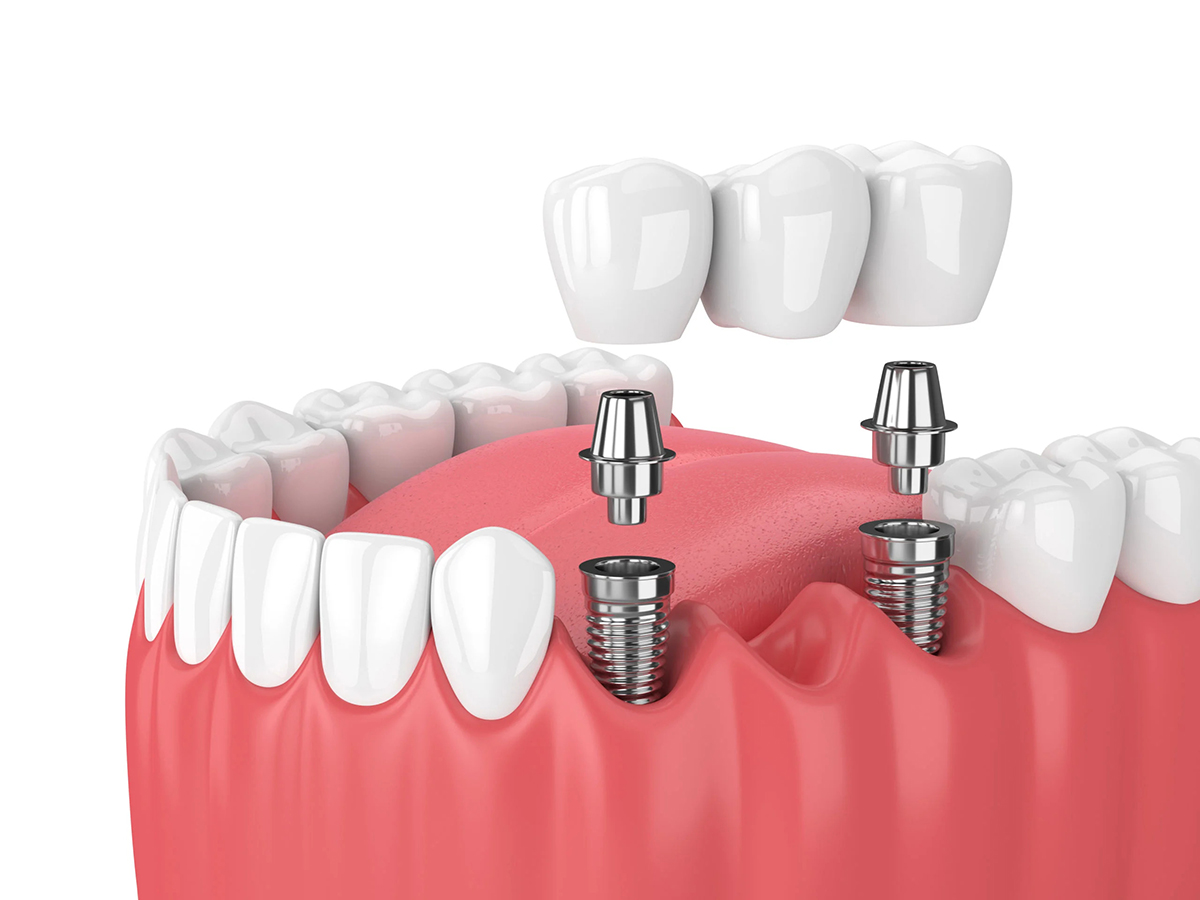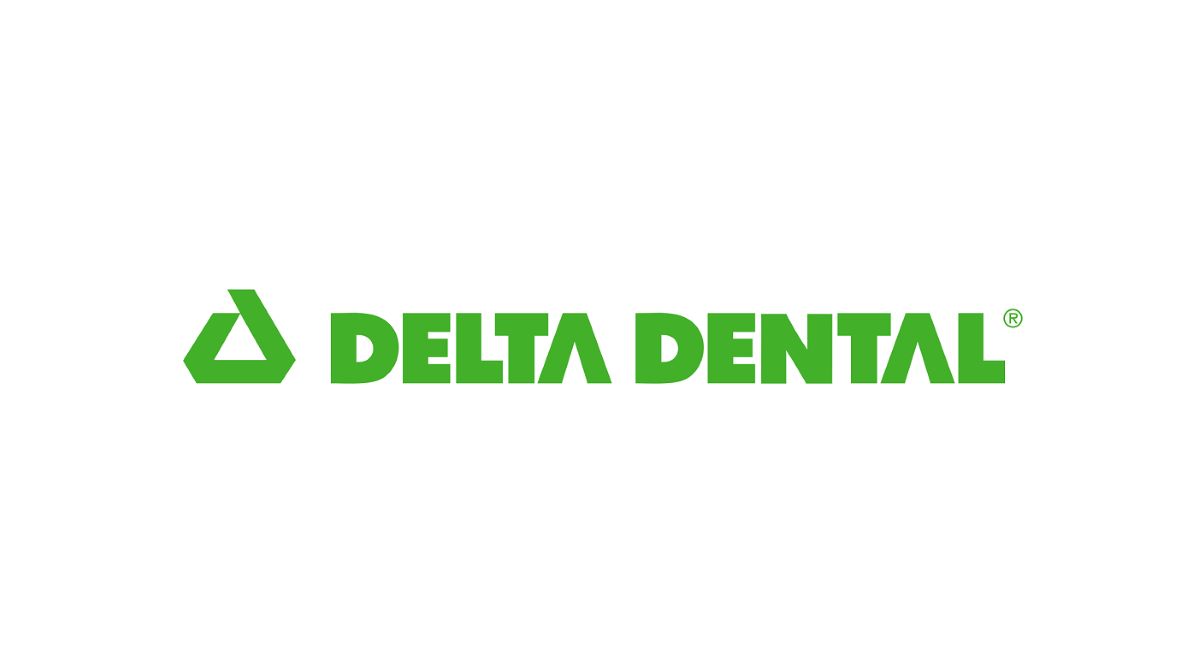Home>Finance>How Much Do Fillings Cost With Delta Dental Insurance?


Finance
How Much Do Fillings Cost With Delta Dental Insurance?
Modified: December 30, 2023
Get information on the costs of dental fillings with Delta Dental insurance. Discover how your coverage can help you save on your dental expenses and manage your finances.
(Many of the links in this article redirect to a specific reviewed product. Your purchase of these products through affiliate links helps to generate commission for LiveWell, at no extra cost. Learn more)
Table of Contents
- Introduction
- Understanding Delta Dental Insurance
- Dental Fillings and their Costs
- Factors Affecting the Cost of Fillings
- Coverage and Cost of Fillings with Delta Dental Insurance
- Average Cost of Fillings with Delta Dental Insurance
- Claim Process for Fillings with Delta Dental Insurance
- Tips for Reducing Filling Costs with Delta Dental Insurance
- Conclusion
Introduction
Welcome to a comprehensive guide on the cost of fillings with Delta Dental Insurance. Taking care of your dental health is essential for your overall well-being, and having dental insurance can provide you with the financial support you need for various dental procedures, including fillings.
Delta Dental Insurance is one of the most well-known and trusted dental insurance providers in the United States. With a wide network of dentists and comprehensive coverage options, Delta Dental Insurance offers peace of mind when it comes to maintaining your oral health.
In this article, we will delve into the various aspects of Delta Dental Insurance, including how it works, the cost of dental fillings, factors that influence the cost, and the coverage provided by Delta Dental Insurance for fillings. Whether you already have Delta Dental Insurance or are considering getting it, this article will provide you with valuable insights and information to help you make informed decisions about your dental care.
So, let’s get started by understanding how Delta Dental Insurance works and how it can help you in your dental care journey.
Understanding Delta Dental Insurance
Delta Dental Insurance is a leading dental insurance provider that offers coverage to individuals, families, and employers. They have a wide network of dentists across the United States, providing access to quality dental care for their policyholders.
With Delta Dental Insurance, policyholders pay a monthly premium in exchange for coverage for various dental procedures, including fillings. The coverage and cost of fillings may vary depending on the specific plan you have chosen.
Delta Dental Insurance offers different types of plans, such as PPO (Preferred Provider Organization) and HMO (Health Maintenance Organization). PPO plans provide more flexibility in choosing dentists, allowing policyholders to visit both in-network and out-of-network providers. HMO plans, on the other hand, require policyholders to select a primary care dentist from a specific network.
Before getting any dental procedure, it is essential to check your Delta Dental Insurance plan’s coverage details. This includes understanding the deductible, co-payments, and any limitations or restrictions on the type of fillings covered.
Delta Dental Insurance also offers additional benefits, such as preventive care coverage, which may include routine cleanings and examinations. This emphasis on preventive care can help policyholders maintain good oral health, potentially reducing the need for extensive dental treatments like fillings.
It’s important to remember that while Delta Dental Insurance provides substantial coverage for dental procedures, there may still be out-of-pocket expenses, depending on your specific plan and the cost of the filling.
Now that you have a better understanding of how Delta Dental Insurance works, let’s explore dental fillings and their associated costs.
Dental Fillings and their Costs
Dental fillings are one of the most common dental procedures performed to restore damaged teeth due to decay or cavities. They help to prevent further decay, restore the tooth’s function, and alleviate any discomfort or pain.
There are different types of dental fillings available, including amalgam (silver) fillings, composite (tooth-colored) fillings, gold fillings, and ceramic fillings. The choice of filling material may depend on factors such as the location of the tooth, the extent of the cavity, and personal preference.
The cost of dental fillings can vary based on several factors, including:
- The type of filling material used: Different filling materials have varying costs. Amalgam fillings tend to be the most affordable option, while gold and ceramic fillings are generally more expensive.
- The size and location of the cavity: Larger and more complex cavities may require additional time and materials to fill, which can contribute to a higher cost.
- The dentist’s experience and expertise: Highly skilled and experienced dentists may charge higher fees for their services.
- Geographical location: Dental costs can vary based on the region or city where the dental practice is located. Urban areas tend to have higher costs compared to rural areas.
It is essential to consult with your dentist to determine the most suitable filling material and understand the associated costs. Your dentist will evaluate the condition of your tooth and recommend the best filling option based on your needs and budget.
Now that we understand the factors that affect the cost of fillings, let’s explore how Delta Dental Insurance coverage works and what you can expect in terms of filling costs with your insurance plan.
Factors Affecting the Cost of Fillings
The cost of dental fillings can vary depending on several factors. Understanding these factors can help you anticipate and plan for the potential costs associated with getting fillings. Here are some key factors that can influence the cost:
- Filling material: The type of filling material used can significantly impact the cost. Different materials, such as amalgam (silver), composite (tooth-colored), gold, or ceramic, have varying price points. Amalgam fillings are usually the most affordable option, while gold and ceramic fillings tend to be more expensive due to the materials used.
- Location and severity of the cavity: The size and location of the cavity can affect the complexity of the filling procedure. Larger or hard-to-reach cavities may require more time and resources, which can increase the overall cost. Additionally, if the cavity has progressed to a more severe stage, it may require additional treatment or procedures, which can further impact the cost.
- Dentist’s experience and expertise: The level of experience and expertise of the dentist can influence the cost of fillings. Highly skilled dentists with a reputation for quality work may charge higher fees for their services.
- Geographical location: Dental care costs can vary based on the region or city where the dental practice is located. Generally, urban areas tend to have higher costs compared to rural areas due to factors such as higher overhead expenses and cost of living.
- Dental insurance coverage: Your dental insurance coverage, such as the type of plan and the specific terms outlined in your policy, can impact the out-of-pocket costs for fillings. Insurance plans may have different coverage percentages or exclusions for certain materials, which can influence your overall expenses.
It’s important to have a consultation with your dentist to assess your specific dental needs and determine the most suitable filling material and treatment plan. They can provide you with an accurate cost estimate based on the factors mentioned above, and work with you to find a solution that fits your budget.
Next, let’s dive into how Delta Dental Insurance coverage works, specifically regarding fillings, and how it can help offset some of the costs associated with dental fillings.
Coverage and Cost of Fillings with Delta Dental Insurance
Delta Dental Insurance offers various dental plans that provide coverage for dental fillings. The specific coverage and cost will depend on the plan you have selected. It’s important to review your policy details or consult with your insurance provider to understand the specifics of your coverage.
Generally, Delta Dental Insurance plans cover a portion of the cost of dental fillings. The coverage percentage can vary, typically ranging from 50% to 80% of the allowed amount. The allowed amount is the predetermined fee that Delta Dental Insurance agrees to cover for a specific dental procedure.
It’s important to note that the allowed amount may be based on a fee schedule, which is a set fee determined by Delta Dental Insurance, or it may be based on the dentist’s actual fee. If the dentist’s fee exceeds the allowed amount, you may need to pay the difference out of pocket.
Delta Dental Insurance also sets limits on the frequency of dental fillings, known as the benefit period. The benefit period is typically one year, during which the insurance plan will cover a certain number of fillings. If you exceed the allowed number of fillings within the benefit period, you may be responsible for the full cost of any additional fillings.
It’s important to understand that while Delta Dental Insurance provides coverage for dental fillings, there may still be out-of-pocket expenses. This can include deductibles, co-payments, and any amount that exceeds the coverage limits set by your insurance plan.
When considering the cost of fillings with Delta Dental Insurance, it’s advisable to check with your dentist to ensure they are considered an in-network provider. In-network dentists have agreed to accept negotiated fees set by Delta Dental Insurance, which can result in lower out-of-pocket costs for policyholders.
By understanding your coverage and cost obligations with Delta Dental Insurance, you can make informed decisions about your dental care and budget accordingly. The next section will provide some insights into the average cost of fillings with Delta Dental Insurance for reference purposes.
Average Cost of Fillings with Delta Dental Insurance
The cost of dental fillings with Delta Dental Insurance can vary based on several factors, including your specific plan, the type of filling material used, and the location of the dental practice. While it’s challenging to provide an exact cost without knowing the specifics of your plan, we can provide some average cost ranges to give you an idea.
On average, the cost of a dental filling with Delta Dental Insurance can range from $50 to $300 per tooth, depending on the filling material and the complexity of the procedure. For example, amalgam (silver) fillings tend to be more affordable, ranging from $50 to $150 per tooth, while composite (tooth-colored) fillings may cost between $100 to $300 per tooth.
It’s important to remember that these are approximate cost ranges and can vary based on your specific plan, geographical location, and other factors mentioned earlier. Additionally, the cost can also depend on the number of surfaces the filling covers and whether any additional dental work is required.
To get a more accurate estimate, it’s recommended to consult with your dentist and inquire about the coverage and potential costs of fillings under your specific Delta Dental Insurance plan. They can provide you with a treatment plan and cost breakdown, taking into account your insurance coverage and any out-of-pocket expenses.
By understanding the average cost range and consulting with your dentist, you can make informed decisions about your oral health and budget for any dental fillings you may require. The next section will walk you through the claim process for fillings with Delta Dental Insurance.
Claim Process for Fillings with Delta Dental Insurance
When it comes to filing a claim for dental fillings with Delta Dental Insurance, the process is relatively straightforward. Here are the general steps involved:
- Visit an in-network dentist: To maximize your benefits and minimize your out-of-pocket costs, it’s recommended to choose a dentist who is in-network with Delta Dental Insurance. In-network dentists have agreed to accept negotiated fees, which can result in lower expenses for policyholders.
- Receive the dental filling: Once you have undergone the dental filling procedure, your dentist will provide you with an itemized bill that includes the details of the treatment, including the filling material used and the cost.
- Submit the claim form: You will need to fill out a claim form provided by Delta Dental Insurance. This form will require information such as your policy number, details of the procedure, and the dentist’s information. You can obtain the claim form from the Delta Dental Insurance website or by contacting their customer service.
- Attach the supporting documents: Along with the claim form, you will need to attach the itemized bill provided by your dentist. This document should include the necessary information about the dental filling.
- Submit the claim: Once you have completed the claim form and attached the required documents, you can submit the claim to Delta Dental Insurance for processing. You can typically submit the claim online through the Delta Dental Insurance website or by mail.
- Review of the claim: Delta Dental Insurance will review the claim and determine the coverage and reimbursement amount based on your policy. They may also assess any deductibles or co-payments that apply.
- Payment and Explanation of Benefits (EOB): Once the claim is processed, Delta Dental Insurance will send you an Explanation of Benefits (EOB), which outlines the details of the reimbursement, including the amount covered and any remaining out-of-pocket expenses. If there are any additional costs beyond your coverage, you will be responsible for paying those to the dentist.
It’s important to note that the claim process and reimbursement timeline may vary. Delta Dental Insurance typically processes claims within a certain period, but it’s advisable to review your policy or contact their customer service for specific information regarding claim processing.
By following this claim process, you can ensure that your dental filling expenses are properly submitted for reimbursement and make the most of your Delta Dental Insurance coverage. In the next section, we will provide some tips for reducing filling costs with Delta Dental Insurance.
Tips for Reducing Filling Costs with Delta Dental Insurance
While dental fillings are an essential part of maintaining oral health, it’s always beneficial to find ways to reduce the associated costs. Here are some tips to help you minimize your filling costs with Delta Dental Insurance:
- Choose an in-network dentist: Opting for an in-network dentist can significantly lower your out-of-pocket expenses. In-network dentists have agreed to accept negotiated fees, which can result in lower costs for policyholders.
- Take advantage of preventive care: Many Delta Dental Insurance plans cover preventive services, such as regular cleanings and examinations, at little to no cost. By attending these preventive visits, you can maintain good oral health and potentially prevent the need for more extensive dental treatments like fillings.
- Understand your coverage: Familiarize yourself with the details of your Delta Dental Insurance plan. Understand the coverage percentage for fillings, any deductibles, co-payments, or limitations that may apply. This will help you anticipate and plan for the costs associated with fillings.
- Explore alternative filling options: Depending on your specific dental needs, there may be alternative filling materials that are more cost-effective. Discuss with your dentist the possibility of using a different filling material that is covered by Delta Dental Insurance and can lower your overall expenses.
- Consider the timing of fillings: If you have flexibility in scheduling your dental fillings, it might be worth discussing with your dentist the timing of the procedure. Some dental plans reset benefits annually, so strategically planning your fillings at the beginning of a benefit period can maximize your coverage.
- Ask for a pre-treatment estimate: Before undergoing any dental procedure, including fillings, you can request a pre-treatment estimate from Delta Dental Insurance. This estimate will provide an approximate breakdown of the cost and the coverage you can expect for the specific treatment. This can help you plan your budget accordingly.
- Utilize a Health Savings Account (HSA) or Flexible Spending Account (FSA): If you have a Health Savings Account or Flexible Spending Account, consider using those funds to cover dental expenses. These accounts allow you to set aside pre-tax dollars specifically for medical and dental costs, providing potential savings.
By implementing these tips, you can potentially reduce your filling costs and maximize your Delta Dental Insurance coverage. Remember to consult with your dentist and Delta Dental Insurance provider for specific details related to your plan and any cost-saving strategies available to you.
Now that you have gained insights into reducing filling costs, let’s wrap up this guide.
Conclusion
In conclusion, Delta Dental Insurance provides coverage for dental fillings, helping to alleviate some of the financial burden associated with maintaining good oral health. Understanding how Delta Dental Insurance works and the factors that affect filling costs can empower you to make informed decisions about your dental care.
By choosing an in-network dentist, taking advantage of preventive care, and understanding your coverage details, you can minimize your out-of-pocket expenses. Exploring alternative filling options, considering the timing of fillings, and utilizing a Health Savings Account or Flexible Spending Account can further assist in reducing costs.
Remember to consult with your dentist to determine the most suitable filling material and treatment plan, while also discussing the potential costs and coverage with Delta Dental Insurance. By following the claim process and submitting the necessary documents, you can ensure that your filling expenses are properly reimbursed.
While this guide provides valuable insights into fillings with Delta Dental Insurance, it’s important to review your specific plan details and consult with your insurance provider for accurate and up-to-date information regarding coverage and cost-sharing.
Your dental health is a crucial component of your overall well-being, and Delta Dental Insurance aims to support you in maintaining it. By utilizing your insurance coverage effectively and employing cost-saving strategies, you can prioritize your oral health without worrying about exorbitant filling costs.
We hope this comprehensive guide has provided you with the necessary information to navigate the world of fillings with Delta Dental Insurance. Remember to stay proactive with your dental care, schedule regular check-ups, and take advantage of the benefits offered by your insurance. With the right knowledge and resources, you can ensure a healthy smile for years to come.














